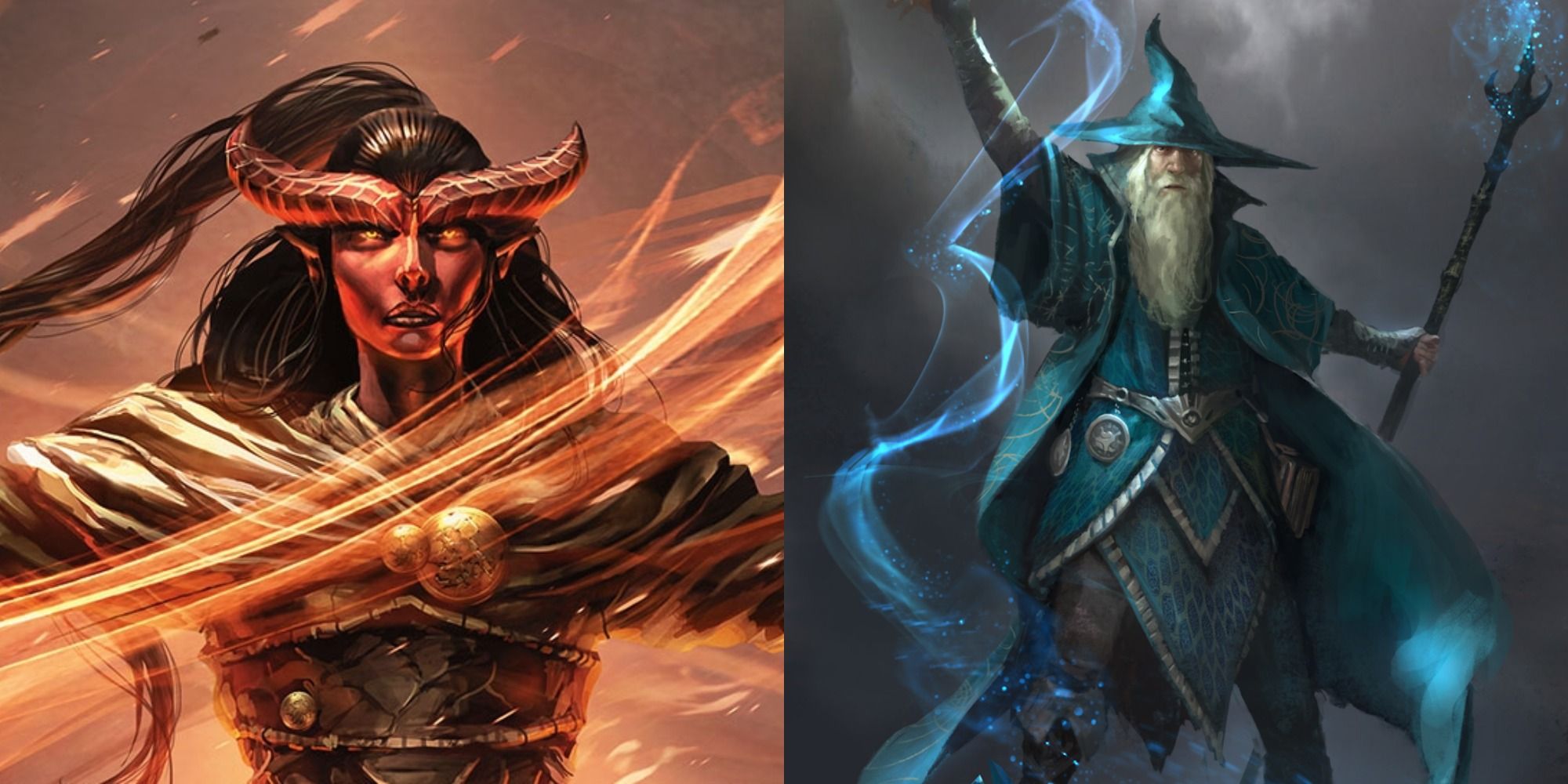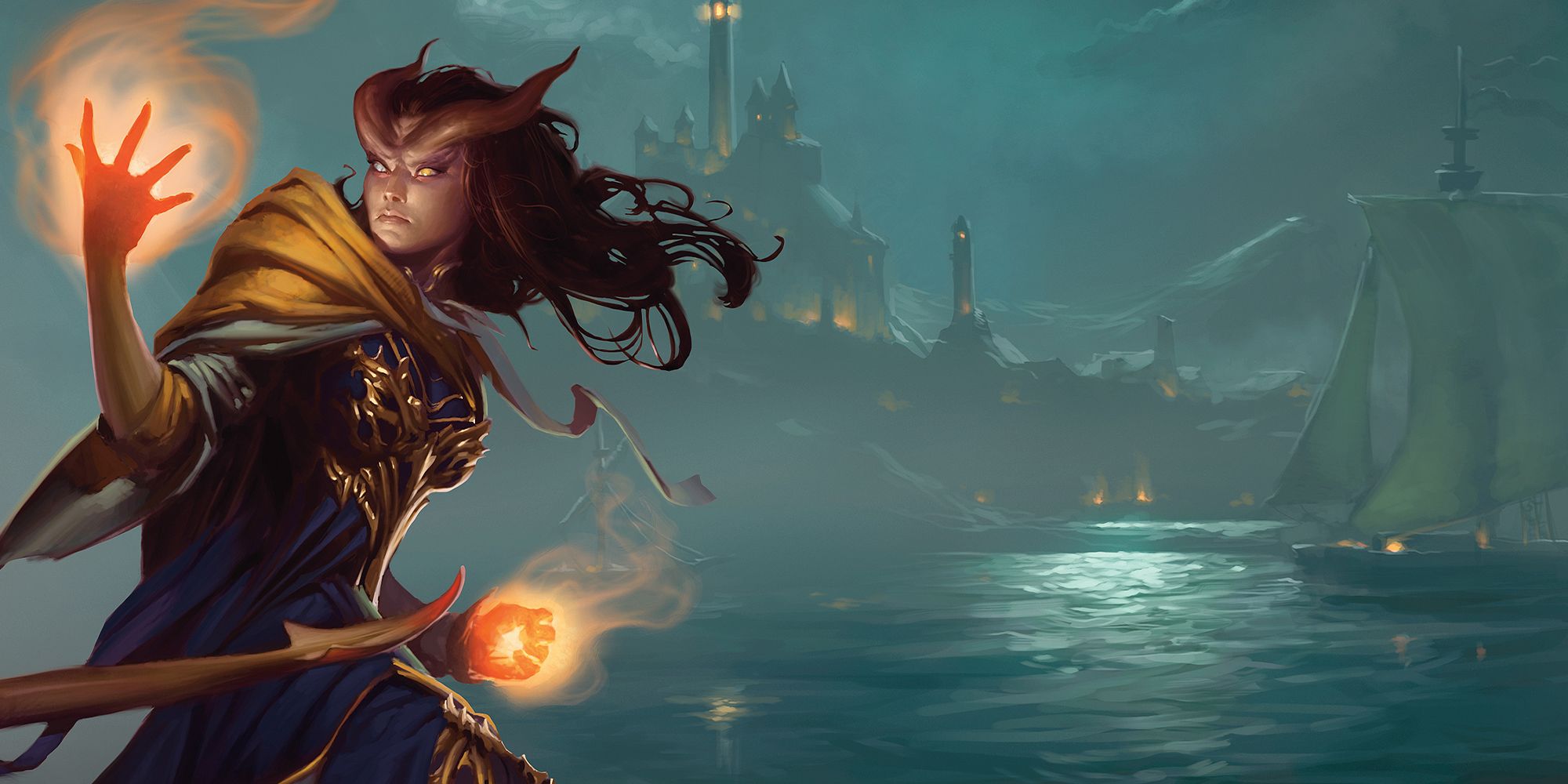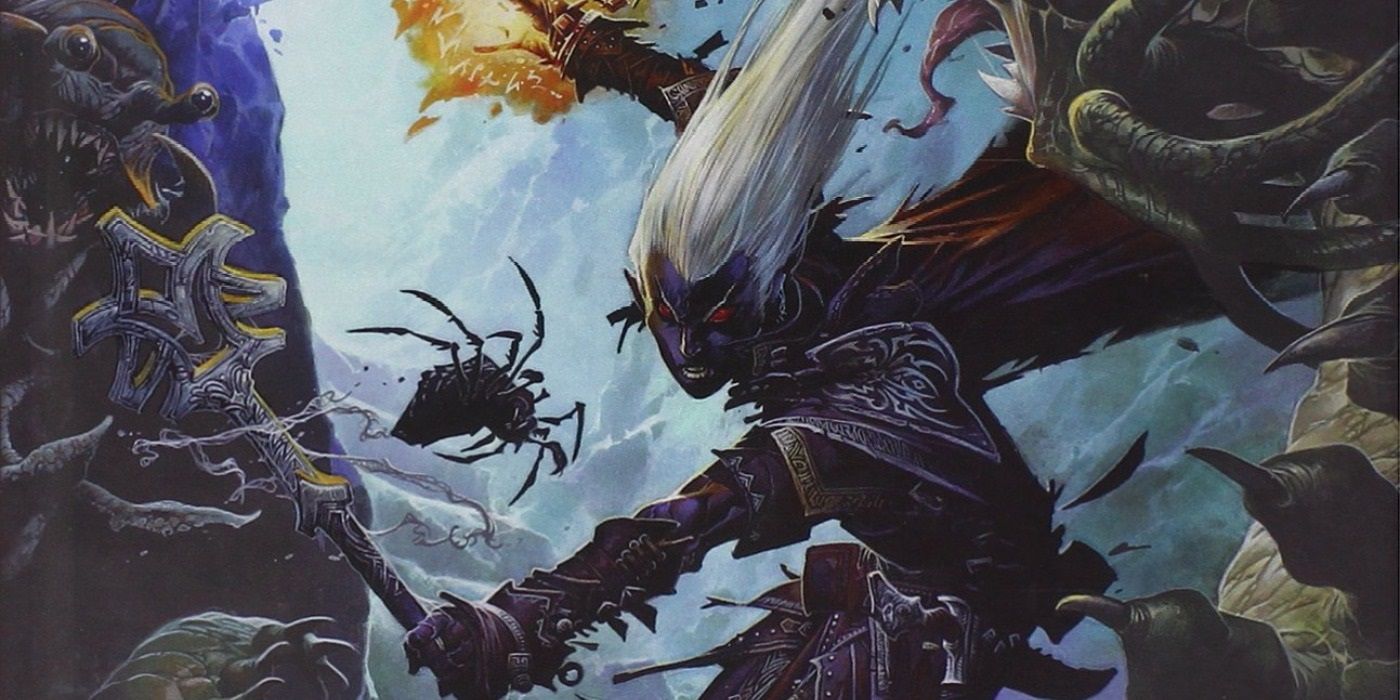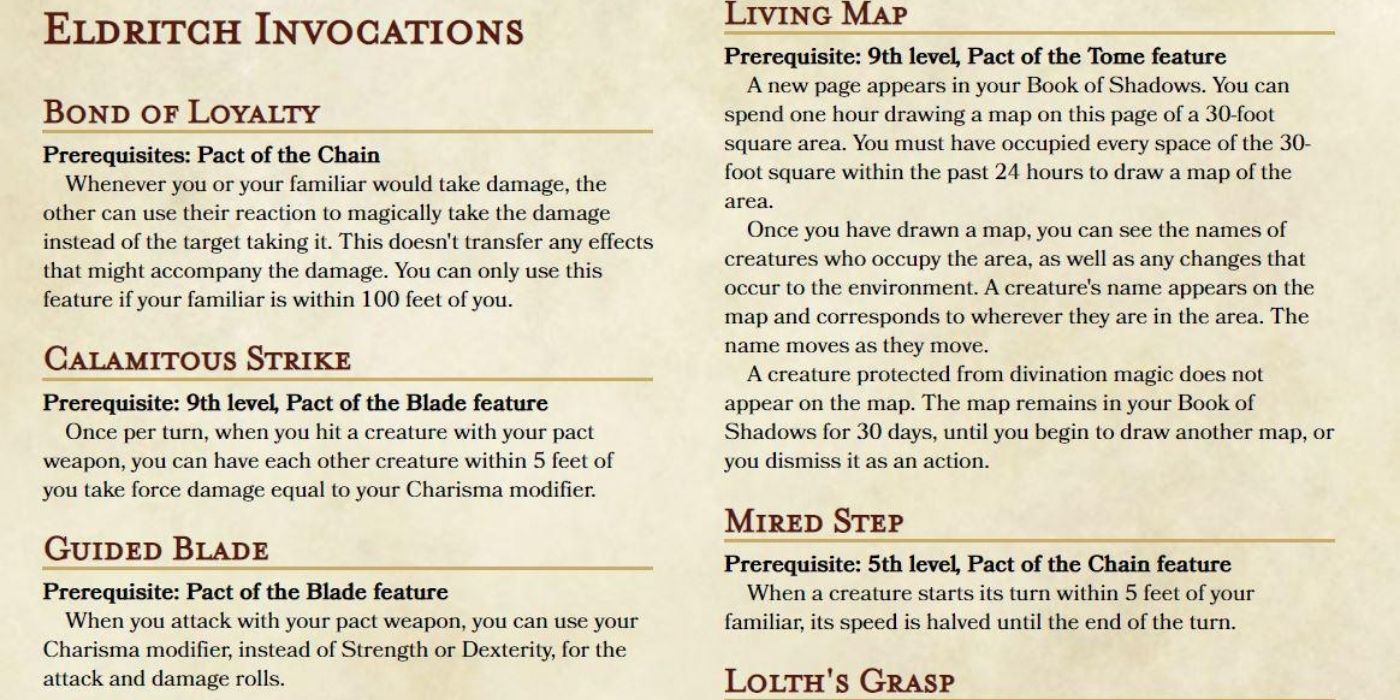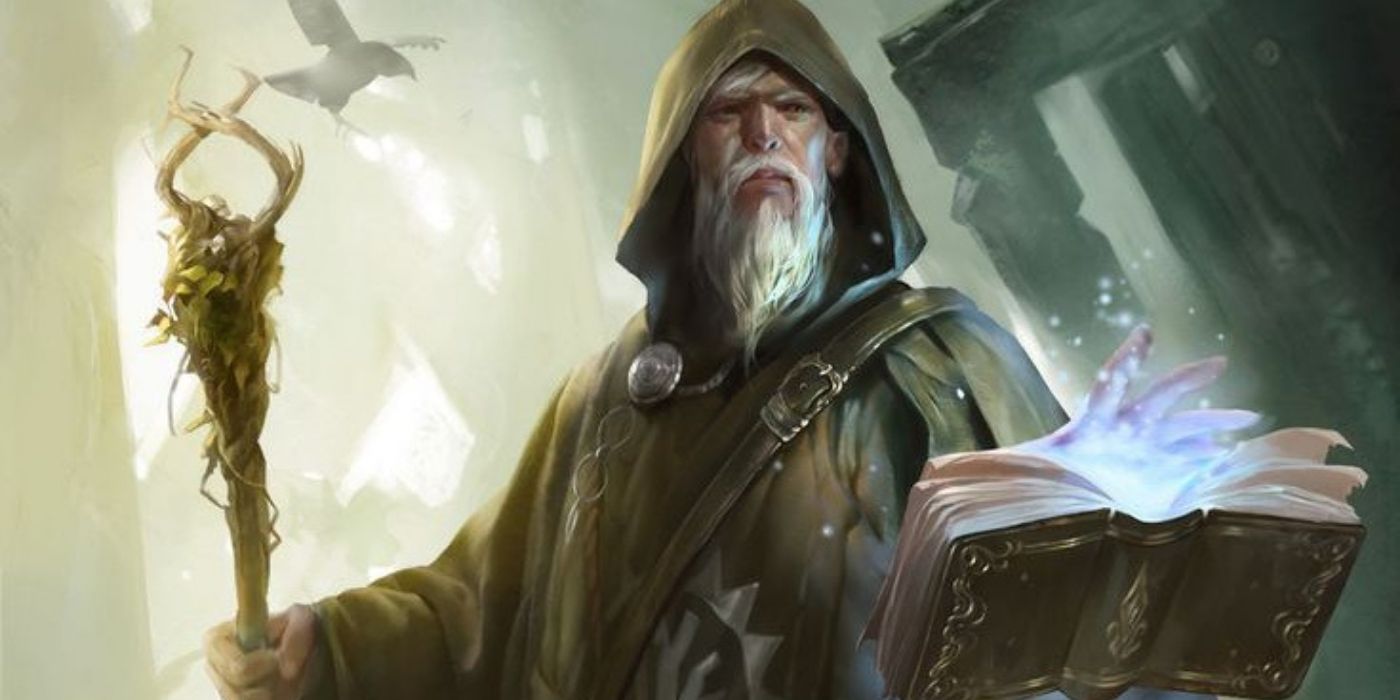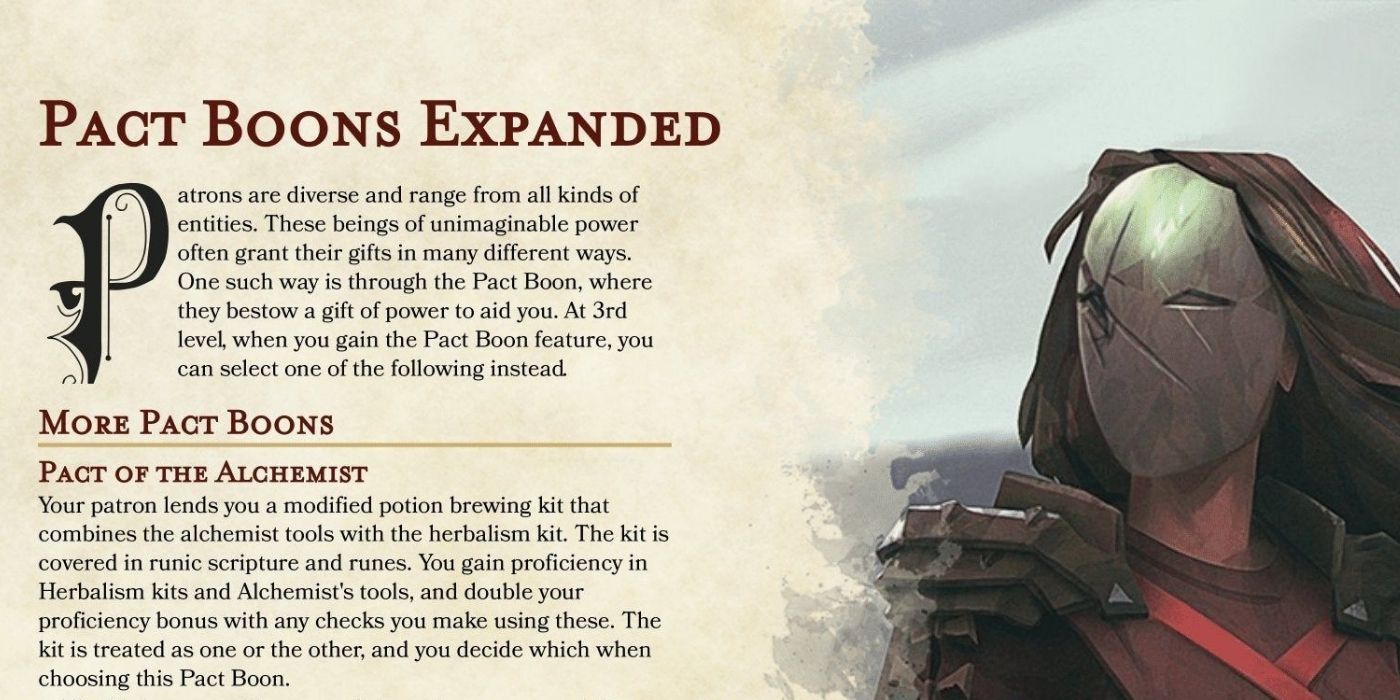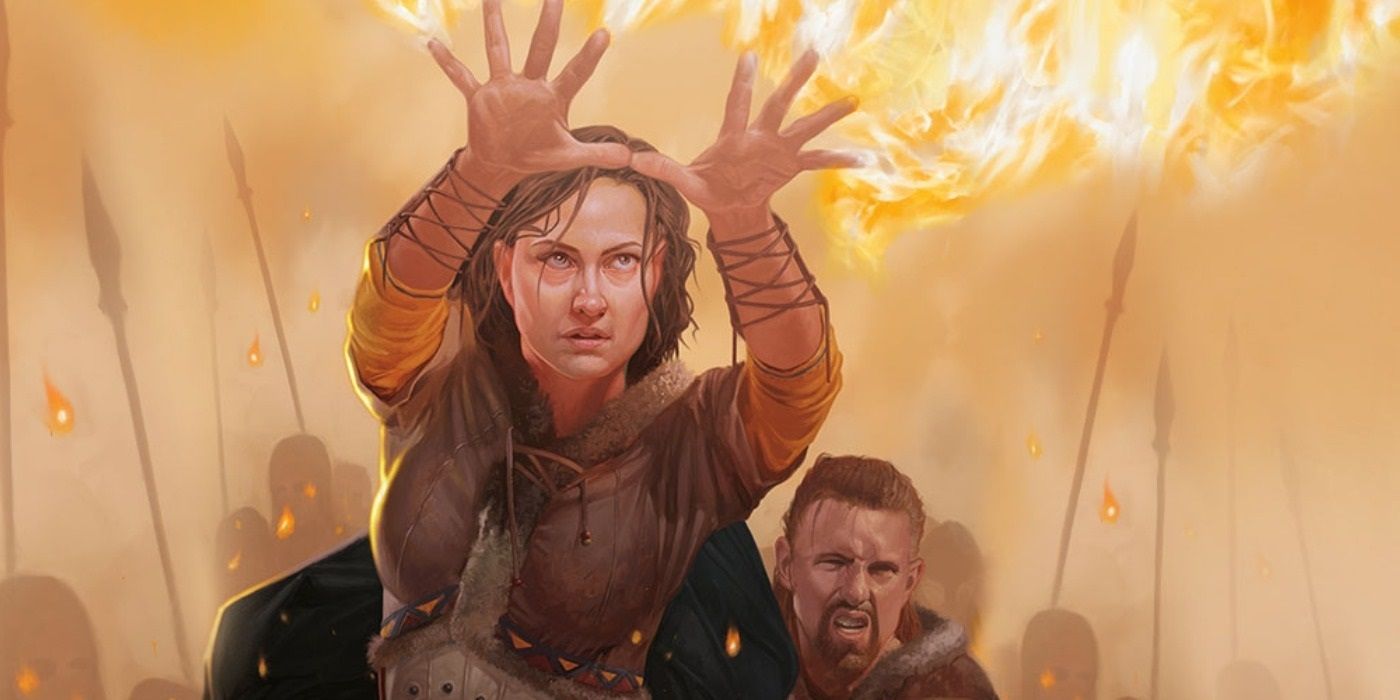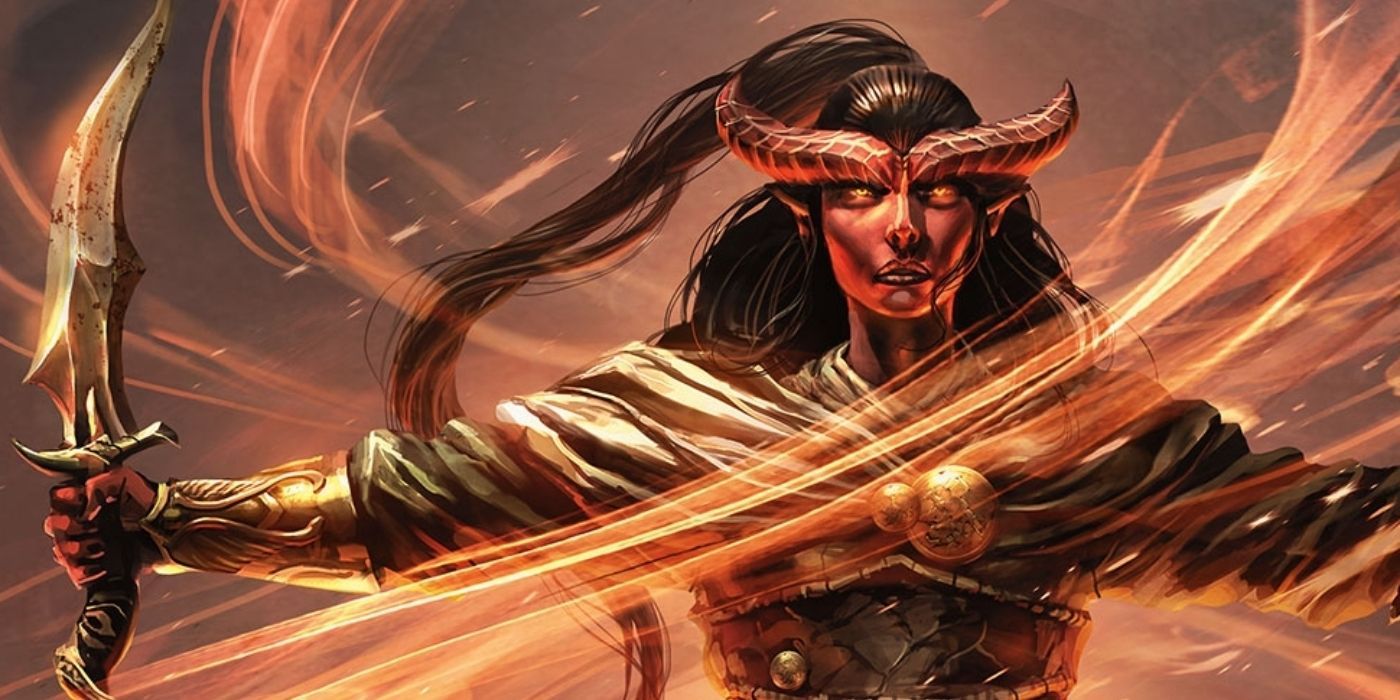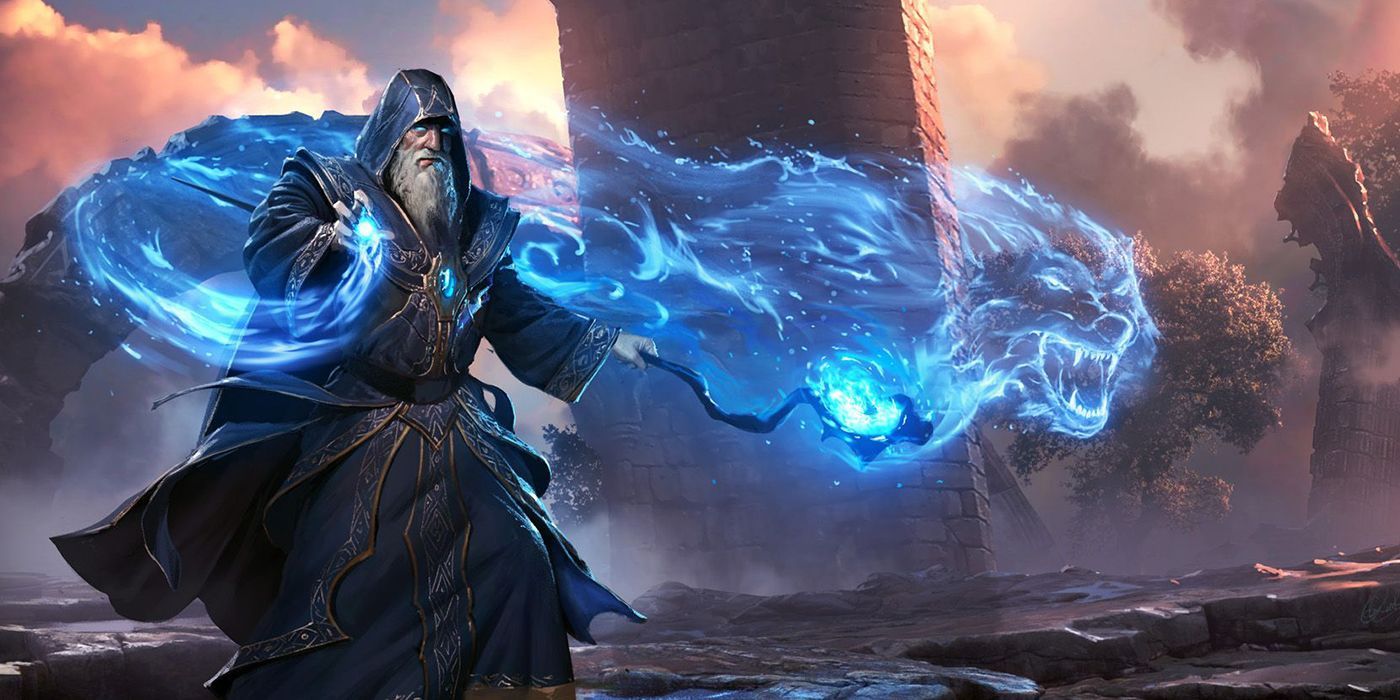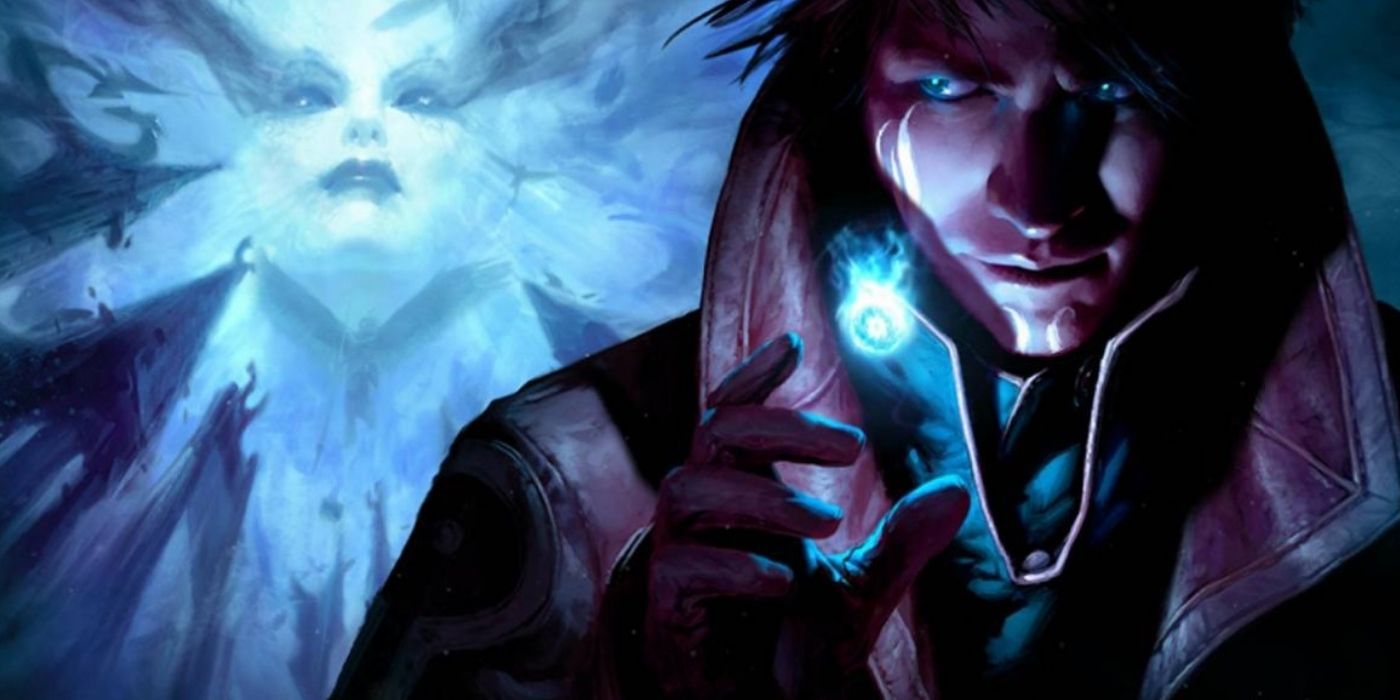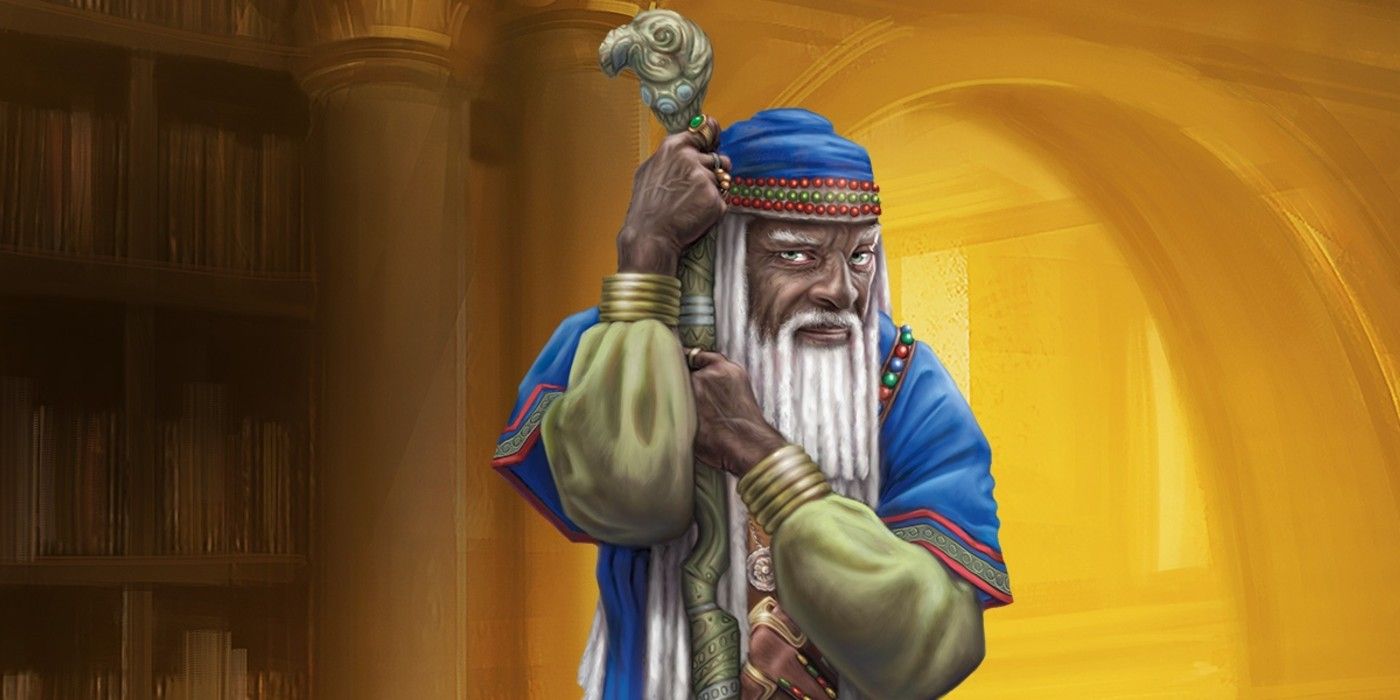Whilst there are many class choices in Dungeons & Dragons 5th Edition for players wishing to make a magic user, wizard and warlock provide two of the most distinctive paths for being able to do so, whether through the intelligence based learning of a wizard or the charismatic bargains of a warlock.
Unlike the sorcerer, both wizards and warlocks must actively choose to acquire their arcane abilities, and though they go about this in different ways, this motivation provides an interesting parallel between the two. That being said, though, there are some huge contrasts between these two classes and their abilities that set them apart from one another.
Warlock: Regain Spells On Short Rest
Although the number of spell slots afforded to warlocks are minimal - and those slots are for a single level - this class has the handy feature of being able to regain all spell slots after a short rest, a skill available to them from the very beginning, at level 1.
Not only does this ability mean that high-level warlocks can gain more uses of a powerful spell with relative ease, but also that when playing as part of a large DnD group, there's less pressure to hold onto those slots in battle when a short rest will soon after be available.
Wizard: Arcane Recovery
Arcane recovery is an ability wizards are granted from level 1, which allows a certain amount of spell slots to be regained after a short rest. These spell slots must have a combined level which is equal to (or less than) half a character's wizard level, rounded down.
Though these recovered spell slots cannot be of 6th level or higher, there is great flexibility in the kinds of spells that arcane recovery allows a wizard to regain, whether that's many low level slots, less of a higher level, or some combination of the two. This allows wizards to refresh their powers throughout the day, and adapt their recovery to match what awaits them.
Warlock: Eldritch Invocations
Eldritch invocations are fragments of arcane knowledge that first become available to warlocks at second level, when a character learns two of them. The amount of invocations known to a player increases as they level up.
The invocations themselves are a hugely useful way to diversify a warlock's skill set, with powers ranging from being able to cast spells not normally available to the class to acquiring additional skills, to bolstering the capabilities of cantrips like warlock favorite, Eldritch Blast.
Wizard: Spellbook
As a fixture of many fantasy movies which can inspire campaigns, the spellbook is perhaps the most iconic wizardly item. At 1st level alone, it is stocked with six spells, and in addition to learning spells when a character levels up, a wizard may also do so when they come across a wizard scroll in their adventures.
This feature of the class gives wizards the potential to learn a far larger volume of spells than if they were just gaining them upon leveling up, whilst also providing motivation on quests related to mysteries of the arcane.
Warlock: Pact Boon
The Pact Boon is a feature bestowed upon a warlock when they reach level 3, as a gift from their patron in thanks for their service and devotion. A warlock can pick from any of the Pact Boons available, no matter who their patron is, though their patron may influence the visual style of the Boon's manifestation.
Each of the 4 Pact Boons - Pact of the Chain, Pact of the Blade, Pact of the Tome, and Pact of the Talisman - has its own distinct benefits, whether that's providing a warlock with a familiar or a magical weapon, but all of them provide characters with a great asset through which to harness and amplify other warlock abilities.
Wizard: Wide Range Of Spells
The wizard spell list, from cantrips all the way through to level 9, is incredibly diverse, for defensive purposes or more intellect-centric roleplaying purposes, useful on adventures that rely on investigation and uncovering mysteries.
Whether facing down a classic Dungeons & Dragons monster or engaging in societal espionage, the wizard spell list is broad enough that players can easily curate it in order to fit both the kind of campaign they're engaging in and furthermore, the kind of wizard that they want to be.
Warlock: Mystic Arcanum
The Mystic Arcanum is the means through which a warlock can cast the highest level spells, given that their spell slots only reach to 5th level. At 11th level, warlocks can choose one 6th level spell as their arcanum. This spell can be cast once without expending a spell slot, after which a long rest must be completed before it can be used again.
Later, at 13th, 15th, and 17th level, warlocks gains a 7th, 8th, and 9th spell respectively which can also be cast in this way. The arcanum allows warlocks access to some of the game's most powerful spells, with the added bonus that is ready to use every day, meaning that once learned there's no chance of being caught unprepared to cast them.
Wizard: Ritual Casting
Ritual casting may be a feature available to a number of spellcasters, but given a wizard's way of casting spells straight from their spellbook, this class arguably makes the most effective use of it. Ritual casting means that spells marked with the 'ritual' tag can be cast without expending a spell slot. Moreover, a wizard doesn't need to have had this spell prepared beforehand.
Although the casting time for a ritual spell increases by 10 minutes, this ability makes the number of spells a wizard has to hand increase greatly, with spells like Comprehend Languages, Detect Magic, and Unseen Servant just some of those available for ritual casting.
Warlock: Patron Features
At the core of the warlock class is of course the source of their power, the patron. As with all subclasses, a warlock's choice of patron provides them with unique features accessed at the 1st, 6th, 10th, and 14th levels.
A warlock's choice of patron also has influence over their potential magic, with each choice granting them a unique expanded list of spells to learn from. The wide range of patrons to choose from also gives warlocks a chance to hone and theme their skills around a certain principle, whether that be the trickery magic granted by an Archfey patron or the elemental magic of a Genie.
Wizard: Arcane Tradition
A wizard's arcane tradition is their subclass, and denotes the kind of magic, or the school of magic, with which they are most deft at casting. The school grants wizards additional abilities at 2nd, 6th, 10th, and 14th level.
Arcane traditions can help boost a wizard's effectiveness when casting spells that fall into their chosen school. Additionally, some school's powers, like those of bladesinging, provide wizards with new proficiencies and further allow players to vary their areas of expertise. The bladesinging school, for example, gives wizards the skills needed to take part in melee battles.

